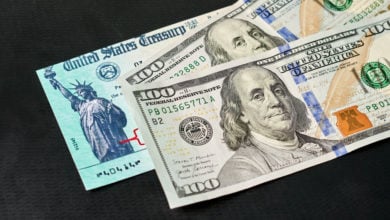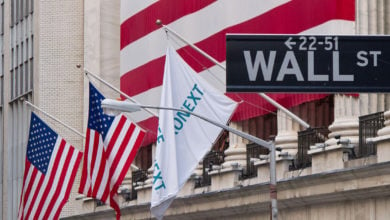Reader Kathy recently sent the following comment to Liberation News on our article “Obama signs ‘Monsanto Protection Act’ into law“:
“It is unfortunate that you do not recognize that capitalism is not the culprit but crony capitalism. Please understand the difference and do your homework. Perhaps a better description is corporatism. Our government is getting too large and operating outside the bounds of our Constitution. Socialism is not the answer as slowly but surely it leads to larger government, a loss of liberties and eventually greater tyranny. Please study history and see how socialism fails every time. Study the late, great Milton Friedman. We have lost our way and people need to wake up.”
This has become a common view, especially among young people who became involved in the Occupy movement and were drawn into Republican/Libertarian Ron Paul’s campaign for president in 2012. Many young partisans of the Free Software Movement, founded by Richard Stallman in 1983, hold similar views.
Members of this movement firmly believe that human knowledge, not only in the realm of computer software but in all its forms, should be freely available to all. They are in this sense “communists,” opposing any and all appropriation of human knowledge as private property—turning it into commodities to be bought and sold.
They argue, correctly, that all human knowledge has been, and continues to be, the product of collective effort and therefore should be part of the human “commons” to which everyone should have free and equal access.
At the same time, many young partisans of this movement—and reader Kathy appears to share this view, along with all Libertarians—identify human freedom, or “liberty” as they put it, with private property. Here it is important to note that, unlike socialists, Libertarians do not distinguish between personal property, such as one’s car, home or toothbrush, and private property in the means of production. To them, all property owned by individuals or particular collections of individuals (such as shareholders in a corporation) is “private property.”
Liberty and private property
This identification of liberty and private property first took hold in the early period of the democratic revolution against feudalism, led by the revolutionary class of the time—the bourgeoisie, or capitalists, who first emerged out of early commodity production and trade. It was a highly progressive idea at the time, and remained so as long as capitalism itself played a progressive role in developing the productive powers of society—which came to full fruition during the Industrial Revolution of the 18th and 19th centuries.
Subsequently, however, the progressive capitalism of the period of its youth evolved into the reactionary and increasingly moribund capitalism of the present day, dominated by huge monopoly corporations and parasitic financial capital.
This evolution was not steered by some conspiracy or the result of false policies of governments or central banks. It is not that, as reader Kathy put it, “We have lost our way.” No, it was the lawful and inevitable outcome of capitalist competition leading to the concentration and centralization of capital, as explained by the founder of scientific socialism, Karl Marx.
Reader Kathy, quite understandably, is appalled at this outcome and the fact that our liberties are more and more being erased by corporate domination over our lives, including, as we have recently learned, spying on our every move and communication. But she concludes that the solution is, in effect, to turn the clock of history back to the early days of competitive capitalism—to get rid of “crony capitalism,” her term for modern-day monopoly capitalism, and return to “real” capitalism.
Aside from the fact that this is pure utopianism, it represents a clear contradiction to the notion that all human knowledge should be the common property of those who have collectively produced it—a notion with which reader Kathy likely agrees. After all, the modern-day means of production have also been collectively, not individually, produced. Why should not it also become the common property of those who have collectively produced it, and used for the benefit of all?
This is the foundation of the program of socialism, after all.
Based on her comment, reader Kathy would presumably rejoin that socialism “slowly but surely leads to larger government, a loss of liberties and eventually greater tyranny.” She adds, for good measure, “Please study history and see how socialism fails every time.”
So for many if not most Libertarians, including possibly reader Kathy, collective ownership in the realm of human knowledge produces freedom and liberty by getting rid of the tyranny of private ownership—as represented by “intellectual property” in all its forms. However, in the realm of physical production the opposite holds—it is collective ownership (socialism) that produces “tyranny,” but it is private property (in the collectively created means of production) that produces freedom and liberty!
We strongly agree with reader Kathy’s advice to “study history.” But what does such a study show, if done in an objective and serious way? It shows that each and every time the producers of private property in the means of production, and of most commodities—that is, the working class—has taken power, first in Paris in 1871 for a brief time, then in Russia in 1917 and in a number of other countries for much longer periods, the very tyrannical powers that reader Kathy and the Libertarians decry—the imperialist governments dominated by monopoly (“crony”) capitalism—mobilized their immense power to roll back by any and all means this struggle by working people for freedom.
Under these extremely difficult circumstances, the governments of these besieged workers’ states were forced in self-defense to impose a “tyranny” over those who linked up with imperialism, whether consciously or not, to bring about counterrevolution and restore private property in the means of production—which finally did occur in a number of countries, including the Soviet Union in 1990-1991.
And so, just as the bourgeoisie during the era of their revolutions suffered any number of initial defeats at the hands of feudal reaction, so the modern revolutionary class, the working class, has suffered defeats at the hands of capitalist reaction. But history is on the side of those with the perspective of getting rid of private property—though not personal property—in all realms and making the socially produced creations of humanity the common property of all.
Milton Friedman’s blunder
Reader Kathy ends her comment with the admonition, “Study the late, great Milton Friedman.” For those who are not familiar with him, Milton Friedman is commonly considered the main architect of “neoliberalism,” the idea that capitalism and the market, if not interfered with by governments, legislatures or trade unions, can be stable and crisis-free and provide full employment at fair wages for everyone willing to work.
Based on a useful study of the history of prices and money, Friedman also came up with the notion that a slow and steady increase of the “money supply,” regulated by the central bank (Federal Reserve System in the U.S.), would further guarantee prosperity under capitalism. This was based on his conclusion that the Great Depression was caused by the erroneous policy of the Federal Reserve in supposedly causing, or allowing, the “money supply” to contract sharply in the early 1930s.
In coming to this conclusion, Friedman reversed cause and effect. It was actually the exceptionally severe overproduction crisis of the early 1930s that caused the contraction of the “money supply.” In coming up with his “solution,” Friedman overlooked the fact that a major portion of the “money supply” is made up of “credit money” created by commercial banks through loans, and that its quantity is based on economic conditions, not the other way around, and is therefore not effectively controlled by any monetary authority. Despite this huge theoretical blunder, Friedman was awarded the Nobel Prize in economics in 1976.
When Keynesian policies of government intervention to stabilize the inherently unstable capitalist economy became discredited during the major “stagflationary” economic crisis of the 1970s, the way was open for Friedman to make his mark by introducing and popularizing the neo-liberal policies implemented in subsequent decades up to the present. These ideas, in turn, have now become widely discredited for millions around the world as a result of the Great Recession and its aftermath—though not yet, apparently, for reader Kathy and others under the spell of Libertarian dogma.
Perhaps it is reader Kathy and the Libertarians who need to study history.






